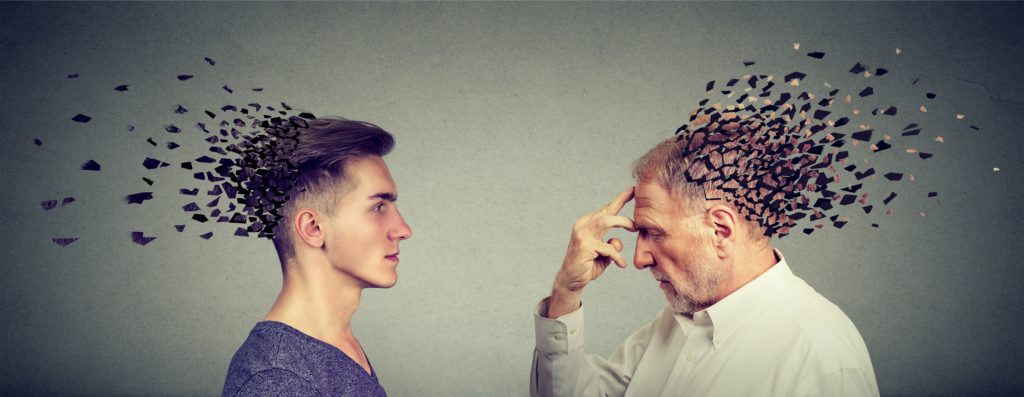Quick Hits
Daily brief research updates from the cognitive sciences

Who wouldn’t want to keep their memory when aging?!
Well, researchers have just announced some promising results in mice enabling them to keep their memories and avoid some of nasty neuro-degenerative aspects of Alzheimer’s.
What did they discover?
If you read the research and the press release, it gets technical and complicated very quickly, so let me translate this for you:
During aging we have more oxidative stress and accumulated stress over our lifetimes, this leads to various proteins, notably one called beta amyloid, building up in the brain. These clumps are resistant to removal and so end up continuing to build up over time contributing to multiple factors and particular impairing memory but in general decreased cognitive function.
The researchers around Adam Smith at the University of Kansas processed a protein from corn in the lab to produce an antigen which helps the immune system to clear out these clumped proteins in the brain. This is effectively a vaccination — mice injected with this showed greater short-term memory on lab tests (such as the clichéd maze tasks) but also on long-term memory. The markers for inflammation in the brain were also lower in blood samples.
The obvious question is would this translate to human beings? Because of the nature of the mechanism which is similar in human beings the researchers think it would but, obviously, this will need more research. But nevertheless very, very promising.
I’m waiting…

Andy Habermacher
Andy is author of leading brains Review, Neuroleadership, and multiple other books. He has been intensively involved in writing and research into neuroleadership and is considered one of Europe’s leading experts. He is also a well-known public speaker speaking on the brain and human behaviour.
Andy is also a masters athlete (middle distance running) and competes regularly at international competitions (and holds a few national records in his age category).
Reference
Adam S. Smith, Kyle R. Gossman, Benjamin Dykstra, Fei Philip Gao, Jackob Moskovitz.
Protective Effects against the Development of Alzheimer’s Disease in an Animal Model through Active Immunization with Methionine-Sulfoxide Rich Protein Antigen.
Antioxidants, 2022; 11 (4): 775
DOI: 10.3390/antiox11040775
More Quick Hits
Social Interactions Define Your Sense of Purpose
Quick HitsDaily brief research updates from the cognitive sciences aving a sense of purpose is a pretty good thing to have because it seems to correlate with multiple health and life satisfaction measures. If you have a healthy sense of purpose you...
Being “Hangry” Really Is A Thing
Quick HitsDaily brief research updates from the cognitive sciences o, scientists have now proven that being “hangry” is real thing. What took them so long? Well, first of all things which seem intuitively right such as the weather making pain worse...
Reward Drives Aggressive Behaviour Against “Others”
Quick HitsDaily brief research updates from the cognitive sciences s vs. them is known as in-groups vs. out-groups in psychology. This is the well-known effect of people being loyal to their own groups and being competitive and often aggressive to...
Low Oxygen Impairs Decision-Making
Quick HitsDaily brief research updates from the cognitive sciences ast year I reported on how pollution and bad air in offices correlates with lower performance and productivity. Something business should take note of. A study out of the University...
The Brain Waves That Drive Social Behaviour
Quick HitsDaily brief research updates from the cognitive sciences have reported in other places on the social regions of the brain (for review see here). And this has indeed been the standard approach – try to identify the specific regions in the...
Being Mindful Improves Relationships With Co-Workers
Quick HitsDaily brief research updates from the cognitive sciences he topic of mindfulness has been a hot topic for a number of years now. This is not to be confused with meditation which is often lumped together with mindfulness – because they do...






